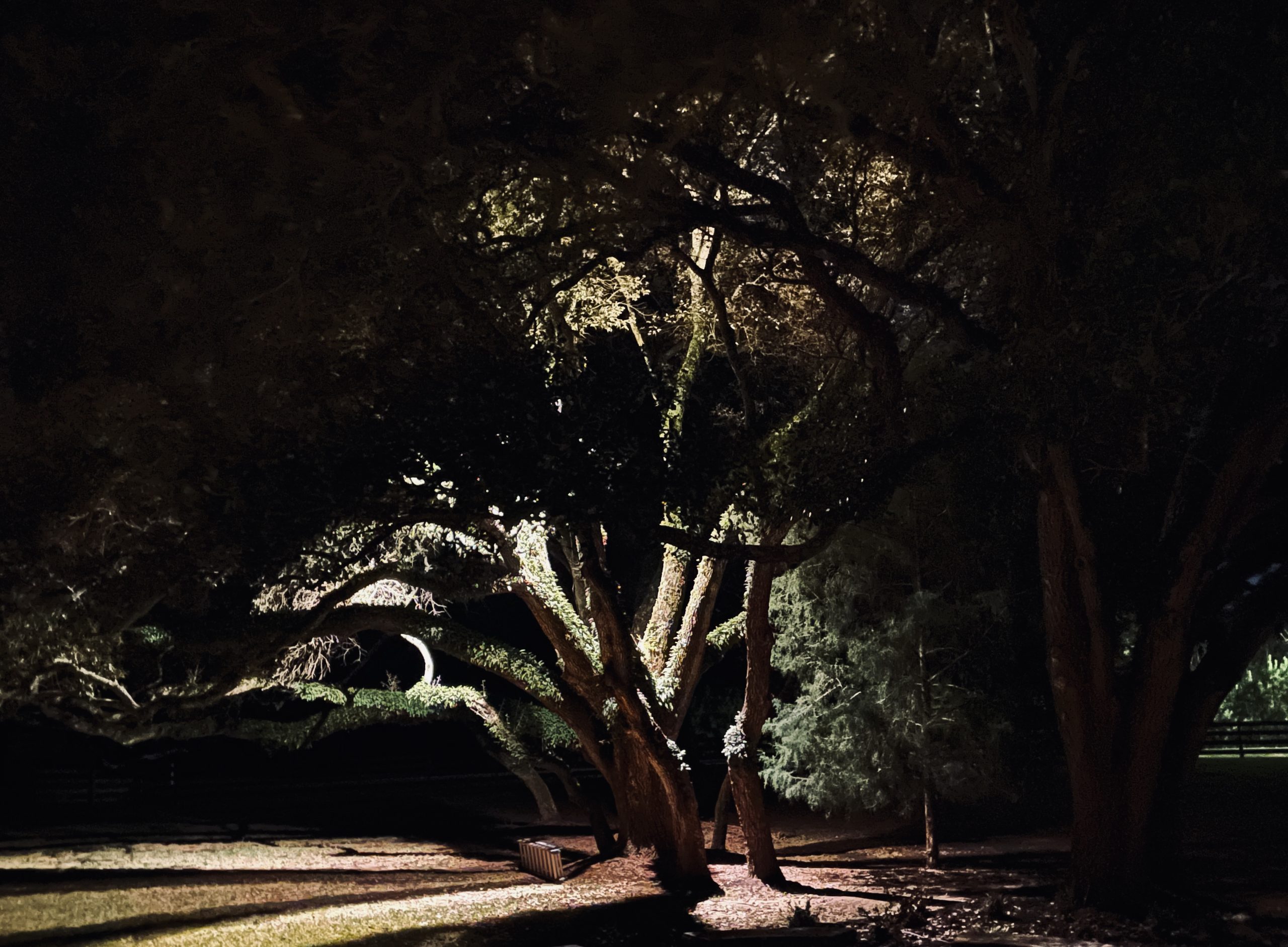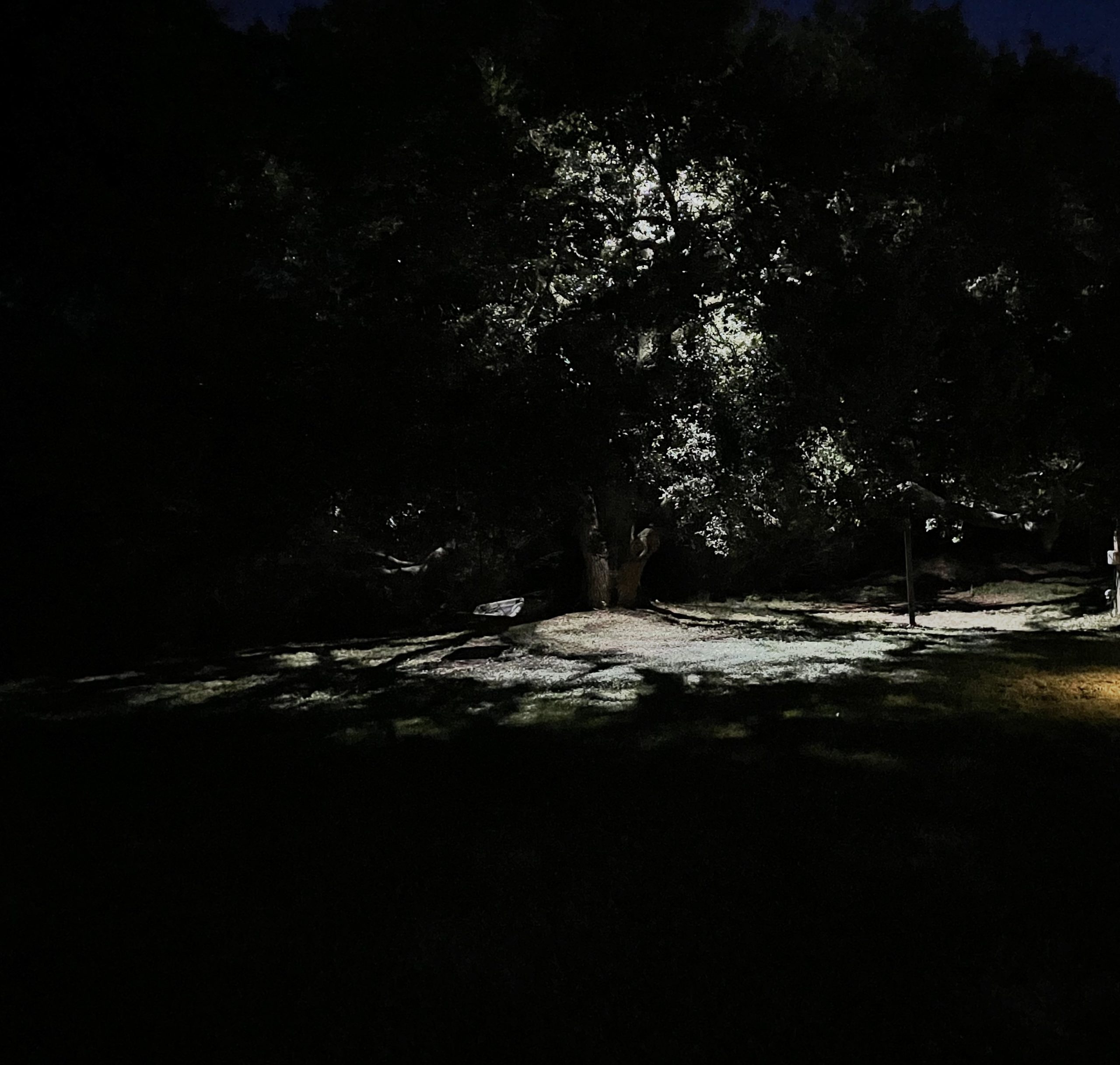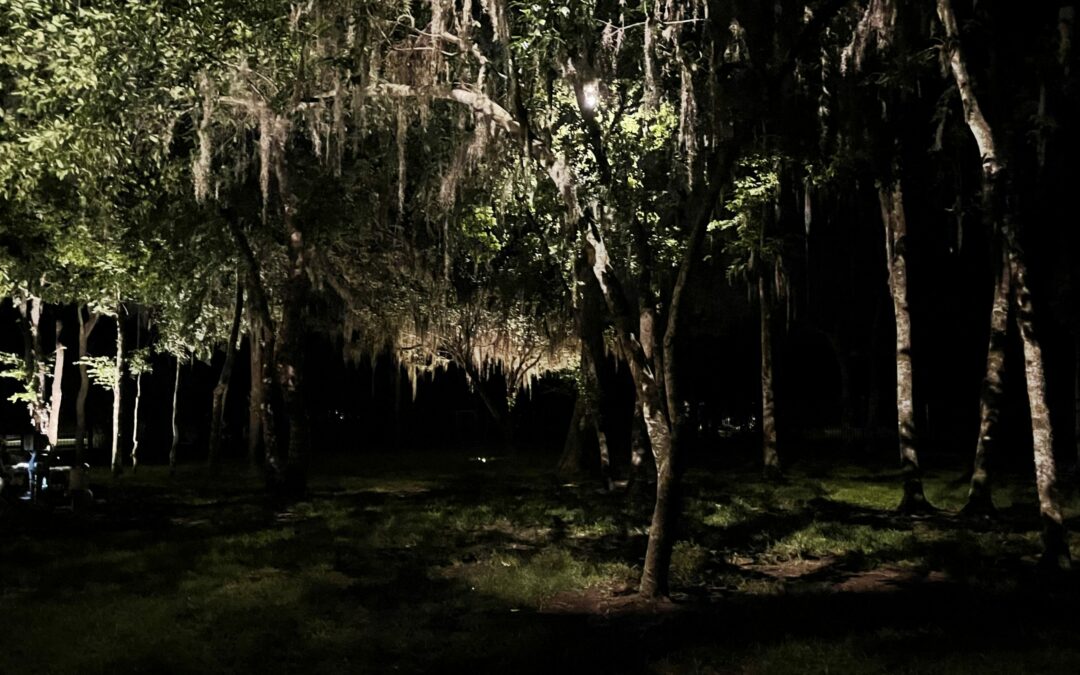
by AM Garden Team | Apr 11, 2024 | Landscape Lighting, Landscape Lighting Services, Moonlighting Effect, Outdoor Living
Landscape lighting design is more than just functional; it’s a way to create ambiance, mood, and enchantment. The moonlight technique is a popular method used by landscape architects and designers to create a captivating, warm glow that resembles a moonlit night. Instead of harsh, direct lighting, this approach uses gentle pools of light to highlight the landscape’s key features while preserving the nighttime’s mystery and tranquility.
However, not all trees are suitable for moonlighting. The tree must have ample height and branches and foliage in abundance. These Specialty fixtures are installed 30’–50’ into the tree canopy with the light spread downward, casting light through the tree structure, and creating an array of shadows blended with light. The result of this technique is like a bright full moon shining through your trees, even when there is not a full moon!
In conclusion, landscape lighting is a powerful tool for sculpting space, eliciting emotion, and enhancing the look of your property and gardens.
Alexander Michael’s Garden and Landscape offers a free consultation service. Schedule your consultation today!
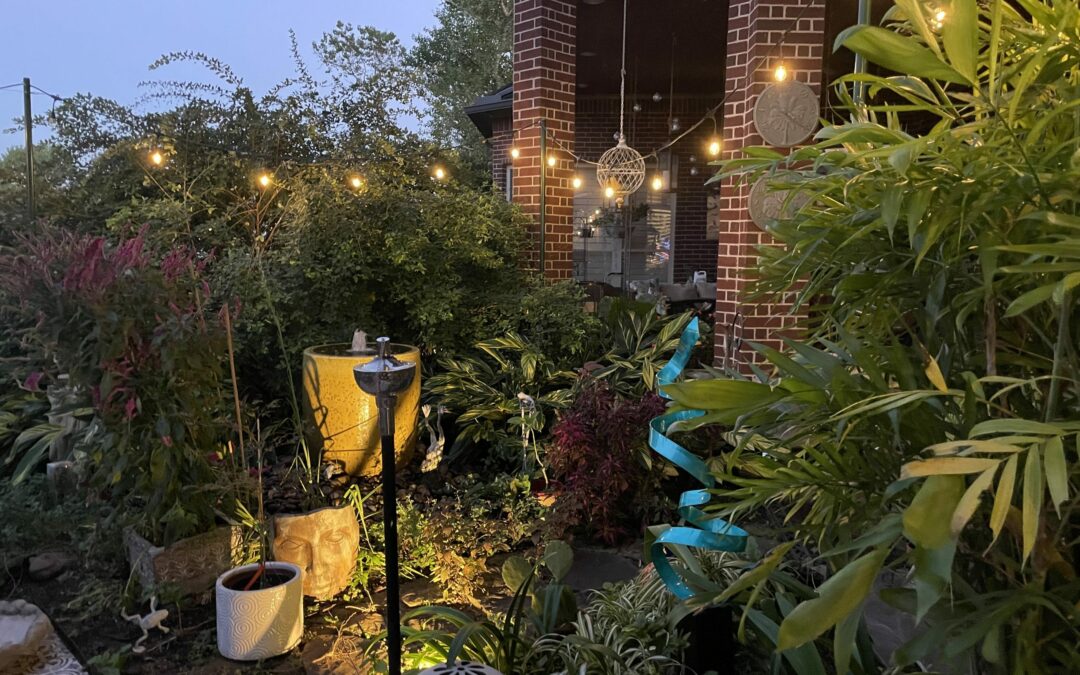
by AM Garden Team | Nov 1, 2021 | Color Changing Lights, Hardscape Lighting, Landscape Lighting Services, Moonlighting Effect, Pathway Lighting, Shadowing Effect
Wondering whether or not to upgrade or add to your existing outdoor / landscape lighting?
Do you have an older lighting system that either does not work very well or not at all? LED technology has advanced in a significant manner over the last five years. As one example, in 2020, scientists even developed a technique that allows for a single LED to produce all three primary colors, which allows the manufacturers full-spectrum, multi-color lights! Imagine having the ability to change the color of your lights, via a mobile application, based on the season of a special day. IE. Christmas colors, blue for law enforcement support, pink for valentines day, etc. LED technology is a great option for exterior lighting. As opposed to traditional halogen light systems, LED has lots of benefits, including energy efficiency, durability, low cost, and low maintenance.
But I have a 120-volt system. Can I upgrade to LED?
120-volt systems are a great alternative for commercial applications, where several hundred feet of coverage is required. If you currently have a 120-volt system, consider this: Each of those bulbs are consuming approximately 60 watts of power, whereas an average LED fixture will consume only 7 watts. And, if your system has antiquated Halogen bulbs, you could expect to use 80% less energy with LED technology. Also, a typical LED lamp has a life expectancy of approximately 45,000 hours. To put that into perspective, if you have your LED system turned on every night, for eight hours a day, you could expect these bulbs to last 15 years, or longer!
What can I expect LED maintenance to cost?
Regular maintenance, usually every one to two years, is recommended to avoid costly repairs. We offer a free one-year maintenance plan at Alexander Michaels Garden, Landscape, And Outdoor Lighting. We will check your system bi-annually forbad bulbs, overgrown vegetation, transformer connections, and wire that has become unburied. All outdoor lighting systems will require maintenance, but LED will require less maintenance and repair over the years.
Do you want your outdoor lighting system updated or retrofitted?
The experts with Alexander Michael’s Garden, Landscape, and Outdoor Lighting are here for you! Call us at 832-515-8240, fill out our online Contact Us Form, and let us provide you with a free design consultation and proposal. Check out our gallery recent projects here.
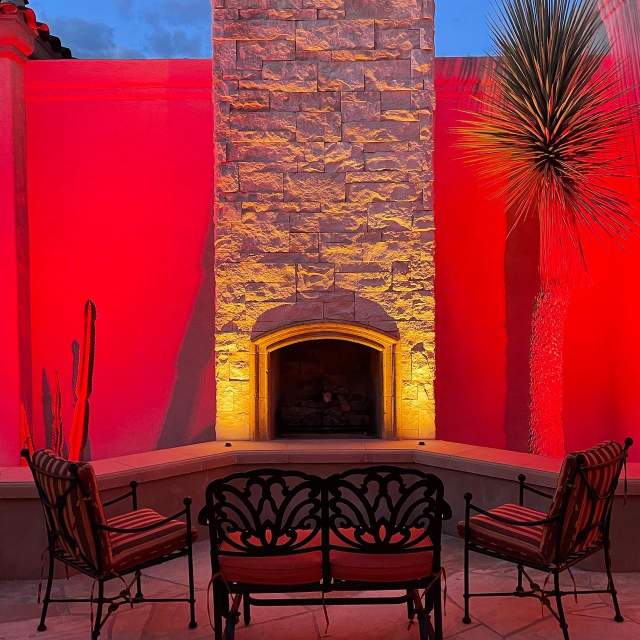
by AM Garden Team | Oct 26, 2021 | Color Changing Lights, Hardscape Lighting, Moonlighting Effect, Pathway Lighting
Whether you want to add to an existing landscape lighting system or begin a new design from scratch, kick your design element into high gear by adding color. Alexander Michaels Garden, Landscape, And Outdoor Lighting can design and install a light color-changing system that will set your design apart from the rest.
APP CONTROLLED
Download a user-friendly APP that connects your smart device to the main transformer. Control the light color and lighting schedule for holidays and special occasions with the app’s simple “click” of a button. You can take the stress out of holiday decorating. No more weekends spent untangling lights or climbing ladders. With the touch of a button, your home lighting will be ready for Christmas, Halloween, or the 4th of July. You can even schedule the lights to change color on a set date, and they will change automatically every year! Then, it is very simple to change your system back to more traditional warm or cool lights for the remainder of the year.
Up Lights And Down Lights
Up and down-lights are available in various wattages and come in aluminum and brass finish options.
Path Lights And Tiki Torch Lights
Whether you are illuminating the path to your front door or around a pool or patio, these lights give you a perfect blend of mood and safety lighting.
Unique Features
Don’t settle for basic lighting, with Alexander Michael’s, our landscape lighting products offer:
- A Variety of Color Options
Our lighting offers a broad range of color options in addition to our Classic White LED lighting. Our hand-selected radiant hues will add a festive touch to your home any day of the year.
- Full Brightness and Temperature Control
Control the color and brightness of your light to best suit your home. Whether you want a bright white to illuminate walkways or a softer shade to highlight your home’s architecture, you can make the change with the touch of a button.
- Durable Brass or Aluminum Finishing
Our fixtures not only look great, but they are also durable, too. Whether it’s rain, snow, or sunshine, you can count on our landscape lighting to stand up to the elements.
- Smart Phone App
The user-friendly app allows you to control your lights from anywhere! You can also schedule your lights to change colors for holidays, game days, or any special occasion. No need for last-minute stress, set it in advance and forget it! This system has it covered.
- Simple Home Automation
There are no confusing timers or unreliable light sensors. Use the app to simply schedule your lights to come on at sunset and turn off at sunrise, and it will happen every day.
Contact Alexander Michael’s Garden, Landscape, And Outdoor Lighting today to schedule your free design consultation.


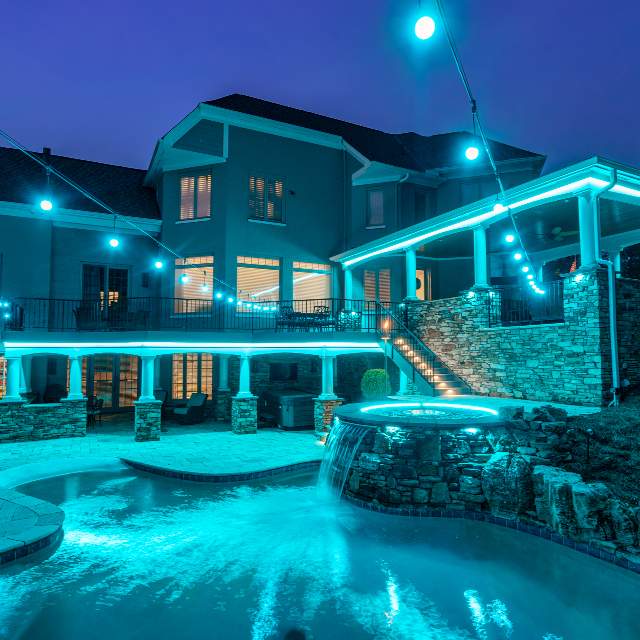
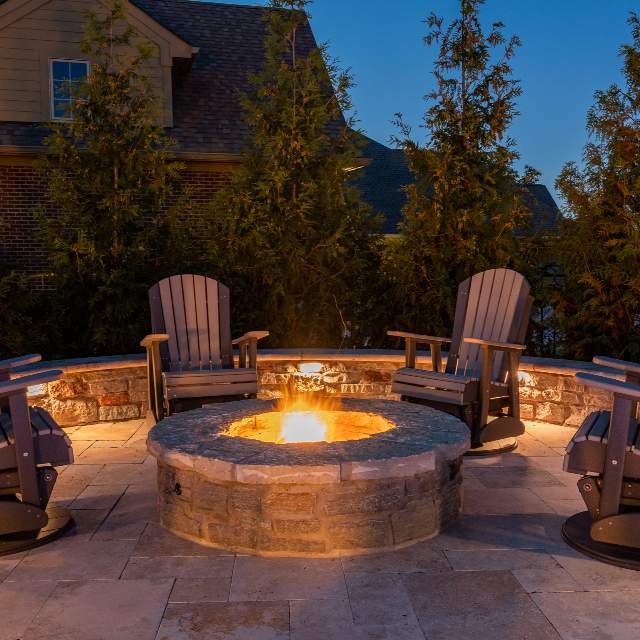
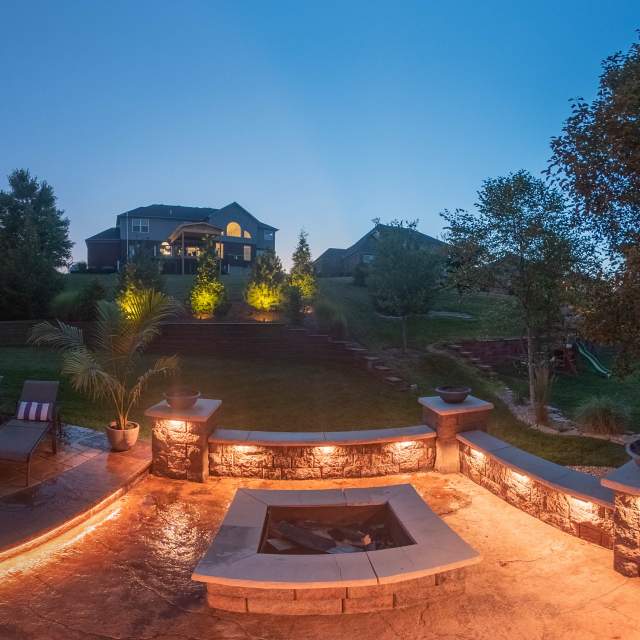
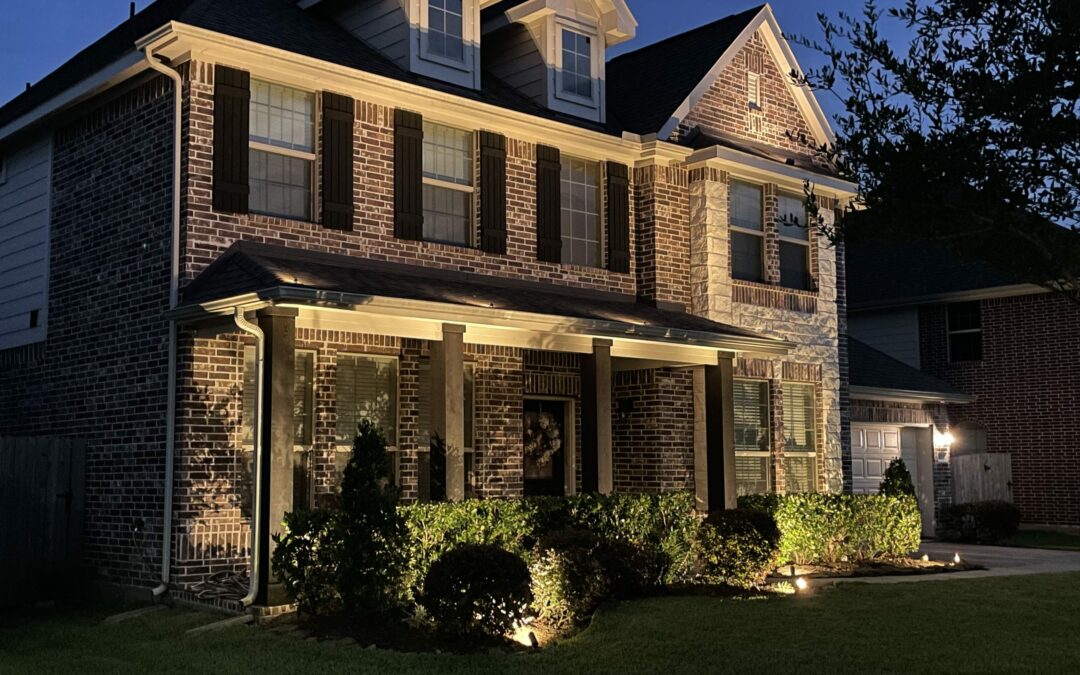
by AM Garden Team | Oct 18, 2021 | Landscape Lighting Services, Moonlighting Effect, Pathway Lighting, Shadowing Effect
Alexander Michael’s Garden, Landscape, And Outdoor Lighting take pride in our knowledge and experience with the different techniques for outdoor lighting. We use our expertise to employ each of these techniques to achieve the most effective results. Our design process is much more than placing a bunch of accent fixtures around your home and calling it a “design”. We consider our customer’s lighting objective, the size, and placement of landscaping, the color scheme of the home, the size of the trees, and the overall size of the property.
The two most common design flaws that I have observed are:
- Incorrect placement of fixtures; In particular, the incorrect aim of the fixture. Most fixtures have lamps (bulbs) that come in a variety of spread widths, from 15 degrees to 120 degrees! The correct spread should be considered when designing the layout and overall lighting objective.
- Every square inch of your landscape or home does not need to be illuminated. An effective design will have layers of lighting, highlighting focal points of the property. So, of the 8 primary lighting techniques, the following are my favorite: (We will cover other techniques in future articles)
Shadowing Effect
With the proper fixture placement and the correct light spread, the shadowing effect is a dramatic look. Not only will the subject plant or bush be illuminated, but the shadowing of the plant will cast a shadow onto the backdrop behind the plant. Palm trees are a great tree to utilize this effect. The placement of fixtures and correct lamp spread is critical with this technique. I’ve included pictures of this technique at the end of this article.
Moon Lighting
My absolute favorite! This technique is not for the installer who is afraid of heights, as it requires climbing into the canopy of a large tree. We use a wide beam specialty fixture that simulates moonlight with the shadow of the canopy branches casting onto the ground below. We always use climbing safety gear. This type of installation brings me back to my childhood tree-climbing days! The approach is straightforward. It also requires a couple of conditions:
-
- The tree should be large, with a wide canopy.
- There MUST be a significant branch pattern from the middle of the canopy to the ground. It’s important that the fixture is installed high enough in the tree to allow the light to filter down through limbs and branches to create this shadowing.
Path Lighting
Path Lighting is an effective way to tie the lighting design together I recommend using a staggard pattern alternating sides of the pathway. Remember though, you DO NOT want single-stemmed pathway lights installed in grassy areas, as whoever mows your grass is likely to destroy the fixture. There are several fixture choices that will alleviate this potentially costly issue, including larger bollards and low-profile fixtures.
Click Here to Contact Alexander Michael’s Garden, Landscape, and Outdoor Lighting to schedule your free design consultation today.



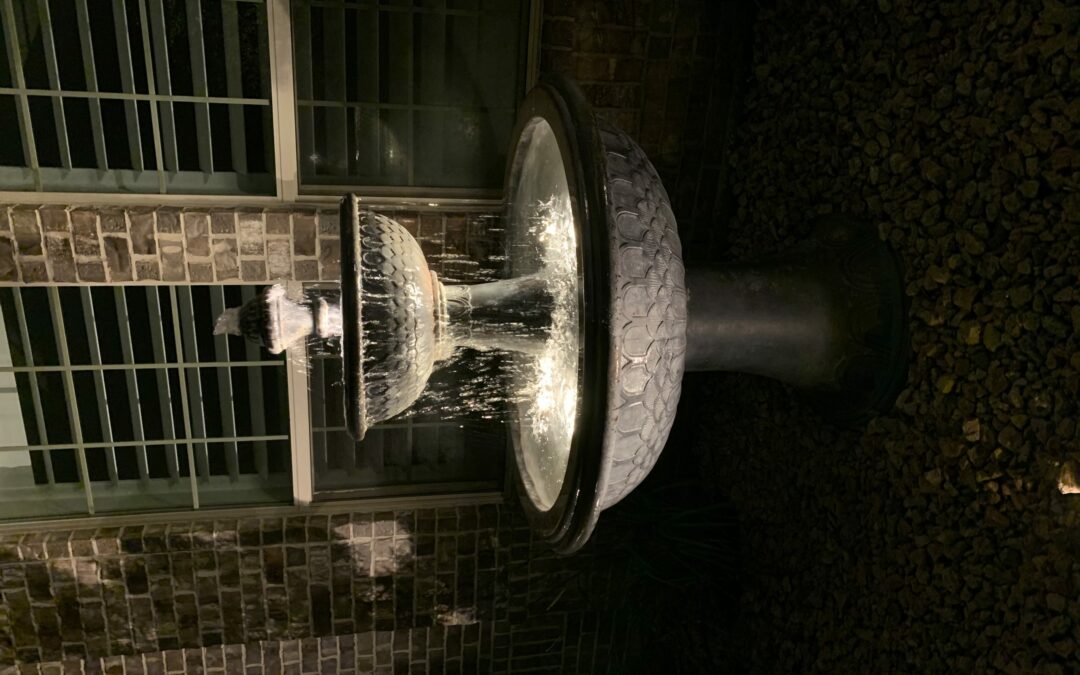
by AM Garden Team | Oct 12, 2021 | Landscape Lighting Services
Voltage Drop…It’s important stuff!
I do not intend on diving into all the technical and mathematical details on voltage drop, but I do think it is worth addressing. Several of our customers either have lighting systems that have lived their lifespan, or they would like to upgrade to additional higher quality fixtures. More times than not, as I check amperage and voltage, I determine that their original system was not installed with voltage drop in mind.
Think about voltage the same as a garden hose (low voltage wire) with holes (Light fixtures) drilled every several inches and capped off at the end. (Last fixture on the wire run) When you turn the water on (electricity), you can expect the highest pressure (voltage) of water from the holes closest to the water supply (Transformer) and the least amount of water from the last holes of the hose. (Last fixture on the wire run) (End of wire run) Eventually, the water will cease to flow to the end holes unless you increase the diameter of the hose (wire) or shorten the length of the hose. (Length of wire)
Low voltage light fixtures require a minimum amount of voltage to operate efficiently. If a system is installed with improper voltage drop considerations, the fixtures may still operate but this lack of power will significantly reduce the fixture and or lamp’s life expectancy.
Two very common mistakes that inexperienced installers make are:
- They do not design the system and wiring of the fixtures and count for voltage drop considerations. (You would be shocked at how many designers skip this critical step)
- Their design of the wiring plan ASSUMES a voltage output from the transformer. This assumption is not the way to go, for when we are at home in the evening watching TV, running the air conditioner, turning lights on in the house, etc., the actual voltage coming from the highest quality transformers might not be what the transformer terminal states. In other words, the installer might have a wire run connected to the 12-volt terminal in the transformer and expect 12 volts to flow. Problem is, during higher energy consumption, that 12 volts terminal might very well be only 11 volts.
So, what is a homeowner to do? Easy…ask the salesperson / installer how they calculate for voltage drop and what would their targeted voltage be at the end of each of their wire runs. Then, request that they send you the specification sheet for the fixtures they intend on using and compare their target with the manufacturer’s minimum voltage requirement. If you get anything other than clear, concise, and obviously educated answers to these questions, you are probably speaking with the wrong installation company.

